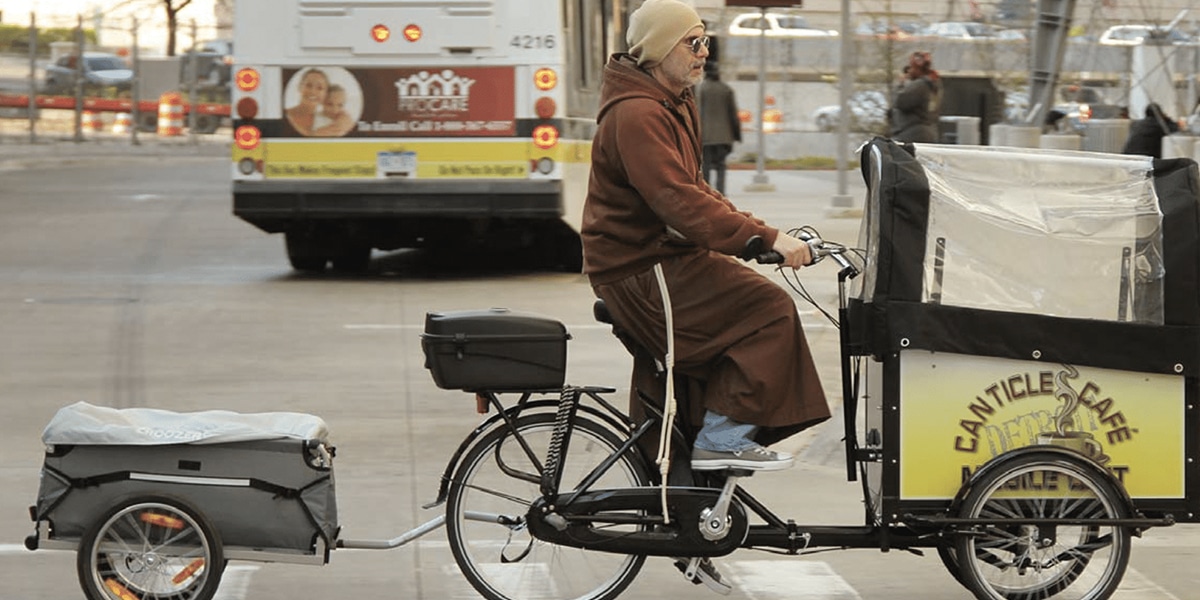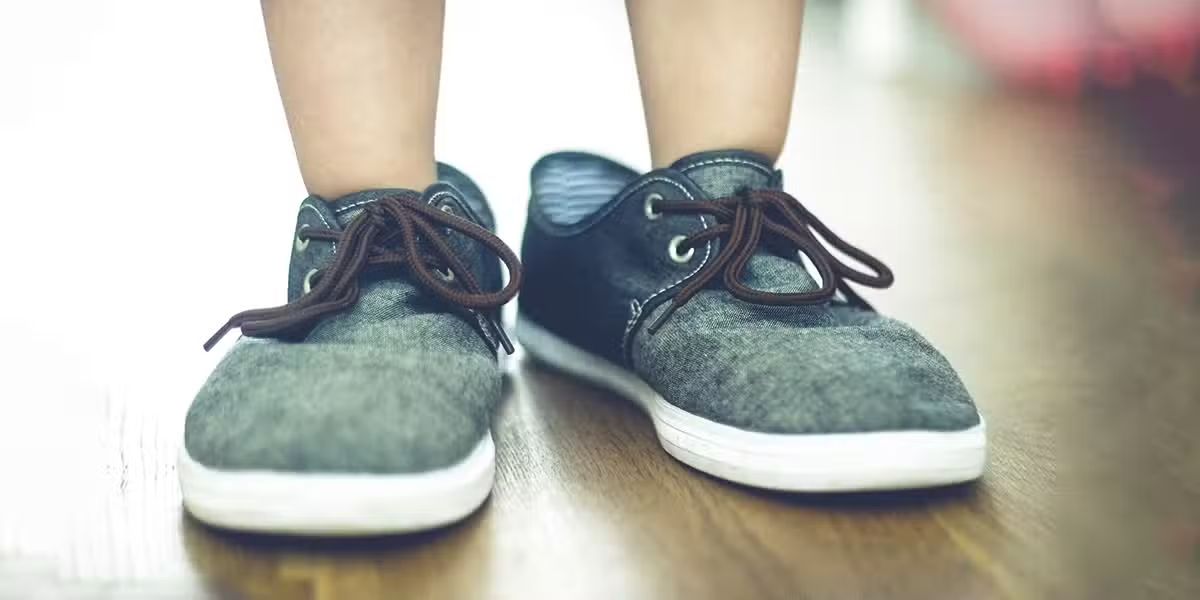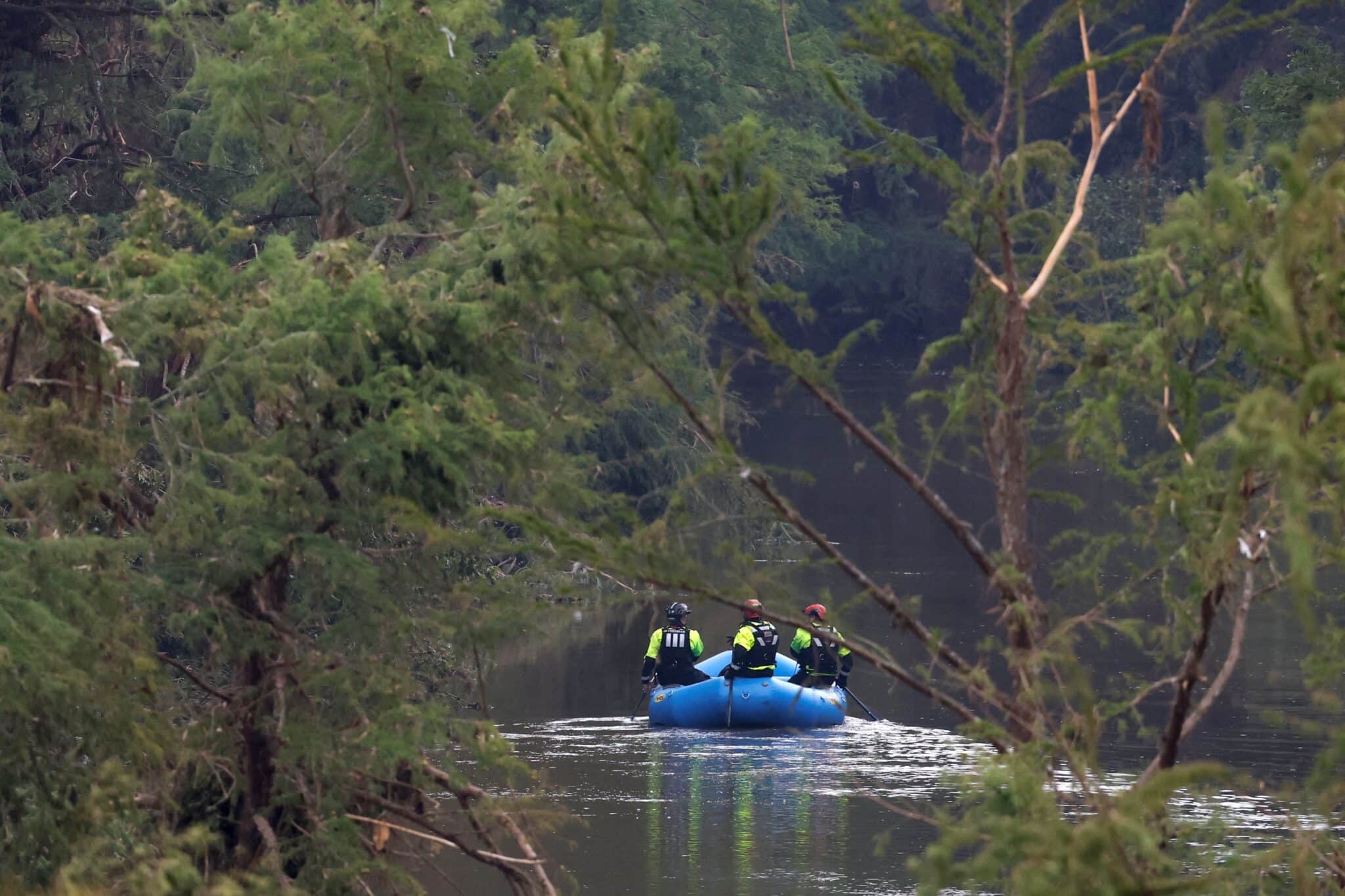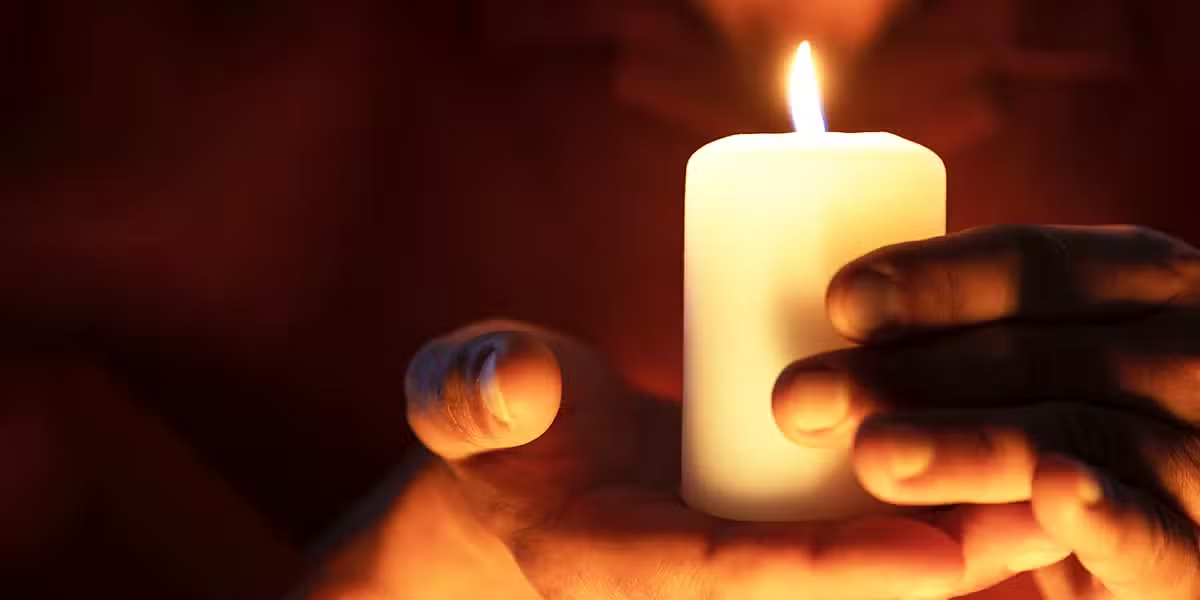A Franciscan brings a song of love to the streets of Detroit.
I was sitting here waiting on the bus, about freezing to death, the first time I saw him,” Kelly Howard says of Brother Al Mascia and the Canticle Café mobile unit. She recalls the line forming at the Rosa Parks Transit Center in downtown Detroit and people walking away with coffee and sandwiches. “I said, ‘Free? Are you serious?’ So I got me a sandwich and it was wonderful. I was going to the doctor, didn’t eat, you know. I’m a diabetic, so it really helped me out.”
Five days a week, teams of volunteers minister in the style of Saint Francis, who left the walls of Assisi to help others. The first official run of the bicycle-cart ministry, which includes a back-end trailer loaded with seasonal necessities such as hats, gloves, scarves, socks, and hand- and foot-warmers, was Christmas Day 2010. The mobile-units ministry follows an 18-year tradition of St. Aloysius Parish opening the doors of their community center’s Canticle Café six mornings a week. Visitors to the Café would find coffee, along with donated breakfast food.
The Café, part of the parish’s community center, was a respite for men, women and children who had no home or needed a meal; a place to warm up in the winter or cool off in the summer. Seniors in nearby subsidized apartment buildings also gathered for fellowship and weekly grocery bags. Then, this past October, the building holding the community center and parish offices was shuttered.
“Once we learned that we would no longer be able to remain for a number of reasons, including safety reasons, we started exploring the possibility of renting space of our own. That led to dead ends,” says Brother Al, coordinator of street ministry.
The parish offices were moved across the street and are tucked into a small area of the ground floor of the rectory, attached to St. Aloysius Church. “We Franciscans still felt a tremendous need to remain and serve and minister in downtown Detroit, and we’re committed to continue to do so,” says Brother Al, even without a brick-and-mortar structure.
Brother Al, once a New Yorker, remembered the vendor carts plying their goods in New York and the well-known Passover song “Dayenu,” sung at every Seder meal. The song, listing the mighty acts of God, says that each act “would have been enough.” Brother Al thought about a cart: Even if that’s all we have, that would be enough. The Canticle Café would be reborn—on wheels!
Shoulder-to-Shoulder
Volunteers and donations have paid for three bike units, and a youth-group car wash is providing money for a fourth. Every Tuesday through Saturday morning, carafes of coffee, hot chocolate, water and whatever sandwiches, muffins or doughnuts have been donated are loaded up and go out through the downtown streets. Two bike-cafés head over to the transit center, which Brother Al says is akin to “a village square,” and the third moves to Hart Plaza, a riverside park, where those without homes often set up camp in an underground structure.
The fourth cart will be used to replenish the others. It will be overseen by the parish nurse or a trained volunteer for anyone needing medical help. The mobile units are used later in the day for a concierge-style grocery bag delivery to seniors’ apartments.
“Anyone can come up and partake from our bicycle carts and be shoulder-to-shoulder with folks from various walks of life,” says Brother Al. “Something happens on the streets now that really hadn’t happened in the brick-and-mortar café [at the parish]. It gives the poorest of the poor an opportunity to donate back. I frequently get a handful of change from even the most destitute of people.
“Then there was a well-to-do couple walking their greyhound through the transit center who, once they heard what we were about, gave me $50 for a cup of coffee!” The public, accessible nature of the café, says Brother Al, “gives us an opportunity to have a much more intimate relationship with people.”
Linda Del Signore, a middle-aged woman with mental illness, was one of those people. She spent her nights huddled in sleeping bags against a building near the church. Brother Al could see her spot from his bedroom on the eighth floor of the friary. On the morning of January 24, 2010, when she wasn’t there, he took off with the bicycle cart.
Blocks away, he found her lying in a doorway, wearing only a thin blouse. Her sleeping bag and other possessions had been tossed nearby. Brother Al covered her with stadium blankets donated only the day before, called 911 and then called the parish nurse.
After an hour of trying to revive her, one of the paramedics came up to him and said, “I’m sorry.” Brother Al has since learned about the phenomenon of disoriented clothing removal that can happen in cases of hypothermia. The temperature that night had dipped to just below freezing.
The revival of downtown Detroit must accommodate people such as Linda, Brother Al insists. With God’s grace, he says, “we hope to grow our bicycle ministry to be a presence and a witness.” This time offers a “privileged opportunity,” he says, to use a new type of urban renewal, one based more on loving, caring, “more based on relationships.”
As the winter winds blow across Detroit again this year, Brother Al and friends will build those relationships, serving food and drink from their carts, bringing warmth, inside and out, to everyone along the way.
Learn more about Brother Al by clicking here.








